Addiction is adversely affecting more and more people each day with those impacted often searching for answers in the form of help. Recovery Communities of North Carolina (RCNC) is providing help to thousands of individuals. RCNC turns no one away and their doors are open during week days as well as some evenings and weekends to help those who need support to find and navigate the journey to recovery. When we hear that someone is an addict, a likely scenario as there are over 20 million Americans suffering from some form of addiction, we immediately conjure up certain images of what an “addict” is. This conjured image and the attitude that surrounds it, is creating a stigma around substance use disorder (SUD) that is making recovery harder and harder to achieve. This stigma is one of the many things that Recovery Communities of North Carolina is fighting to change when it comes to substance use disorders and recovery.
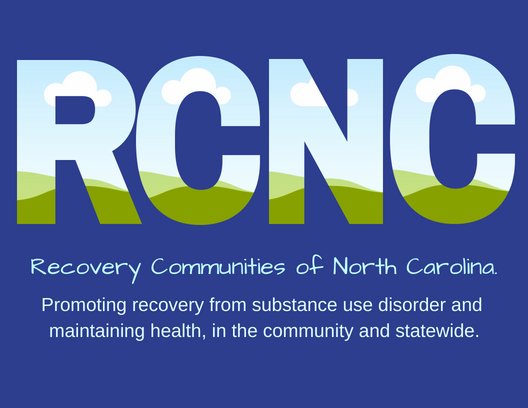

RCNC provides support in the form of serving as a statewide repository for training, education, technical support, outreach, and advocacy for those suffering with substance use disorder (SUD) and/or co-occurring conditions. RCNC works closely with the community and is comprised of two specific areas or “arms”. The first offers service provision statewide in the form of training, technical assistance, recovery community center oversight and guidance, including organizational development, community assessments, and educational opportunities to providers of services to those with substance use disorders and their families. The other arm is their recovery community center where they provide direct services for anyone needing recovery support.
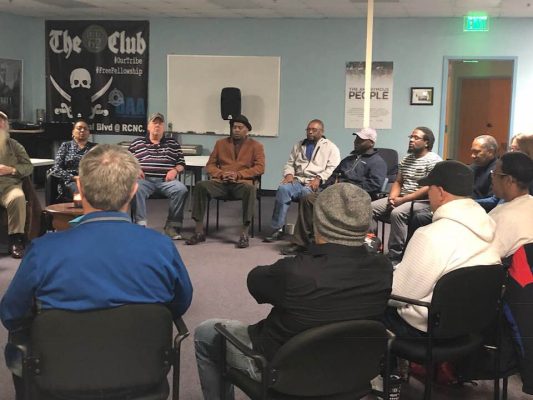

RCNC’s Recovery Community Center provides programs and services that address gaps in the quality of life for those seeking sustained recovery. This can include offering recovery coaching, care coordination, recovery plan development, treatment referrals, psychiatric advance directives, recovery circles, family groups, and sober community activities. These are all designed so recovering individuals can gain confidence on their journey of recovery, build affinity with others in their smile and project that into the interviews and goals they try to obtain. Or it could be helping individuals who have been convicted in the past of non-violent felonies gain employment and workforce development through programs.
What makes RCNC work you may wonder. It is simple; RCNC’s leadership and staff create success stories for those struggling with substance use disorder. Dr. Rita Anita Linger, PhD, CPC, CMBP, is driven by her passion to provide solutions to individuals dealing with substance use disorder. Substance use disorder has impacted her personally and she understands well the impact of addiction. She is a mother who has lost two children to a substance use disorder (one to an opioid overdose), as well as two nephews and her younger sister and others in her family experiencing long term recovery. However, her passion is not isolated to just her family but to all mankind. Dr. Linger has decades of experience providing leadership and designing and implementing holistic initiatives, in which marginalized and vulnerable populations are provided access to programs and services that empower them with a strong sense of hopefulness, confidence and skills, where they can begin building a quality life for themselves with support. Like any great warrior you are always moving to defend or assist those who are in need of help. This philosophy can be seen in Dr. Linger’s past. She is an award-winning community/public health and wellness professional. She has worked for over three decades to improve the quality of care for both community members seeking improved health outcomes and those who work with them. For most of Dr. Linger’s career she has led organizations both in the non-profit and for-profit worlds with her expertise in assessing community/public health and organizational needs, and moving forward to create solutions for seemingly intractable conditions is noteworthy. Her name and picture sits on a quilt next to Dorothy Cotton (Martin Luther King’s Civil Rights Aide and Confidante), in the DeWitt Historical Museum in New York State Museum (NYS) for her leadership in Social Justice and Community Health Advocacy work. She works daily in service of increasing understanding and support for the recovery movement including but not limited to substance use disorder and brain function, stigma reduction and the importance of language, genetic predisposition to substance use disorder as well as the power of epi-genetics. Dr. Linger is a recovery ally and has dedicated her life to helping to transform the image of how people see themselves so that they can move forward toward sustained recovery.
According to Dr. Rita Anita Linger, one of the reasons behind RCNC’s success is because they have their “finger on the pulse” of the needs of those who suffer from substance use disorder, those in early recovery, their families, and those who provide services for them. Dr. Linger believes that RCNC is able to achieve great success with their programs because the team at RCNC are very good at listening, and working with participants and providers in problem solving, and creating partnership solutions in a very innovative way, responding in meaningful ways to the very fluid environment of substance use disorder and recovery. Their programs and services are an outgrowth of community need and desires for change and movement. Dr. Linger is just one example at RCNC of the passion and empathy that resonates from every individual within the organization. She provides her staff (which she called “the team”), with high accolades for their diligence, tenacity and passion to serve those who come through their doors every day.
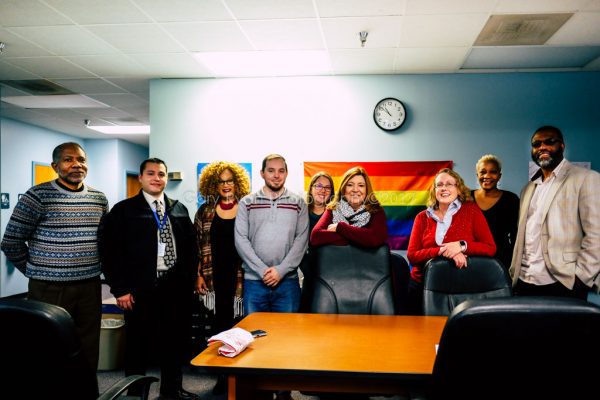

What makes RCNC relatable and relevant? It has all the ingredients for success. Dr. Linger has a proven track record of providing much needed services to the citizens of North Carolina for 12 years. In addition, she has worked with people with SUDs for two decades and is personally familiar with the struggles people who suffer with addiction have from her personal experience of losing children and other family members to addiction, as well as helping other family members and loved ones move toward long term recovery. These experiences have fostered her passion about the mission of RCNC and her personal mission to help others.
RCNC uses a multiple pathway approach when it comes to tailoring recovery programs for individuals. They believe that there isn’t a singular pathway for everyone to take on the road to recovery; what works for one may not work for another. For instance, anonymity has always been a factor when it comes to recovery. For many, confidentiality is important to them and they do not wish to disclose their substance use disorder or their recovery journey with those outside of their self-help group, so they attend anonymous groups or participate in phone services to find support guidance. While that may work for some, the idea of self-identifying has been gaining traction in the recovery movement and seems to be working well for many with substance use disorders. By self-identifying, individuals can begin transforming how they see themselves as recovering persons with a substance use disorder.

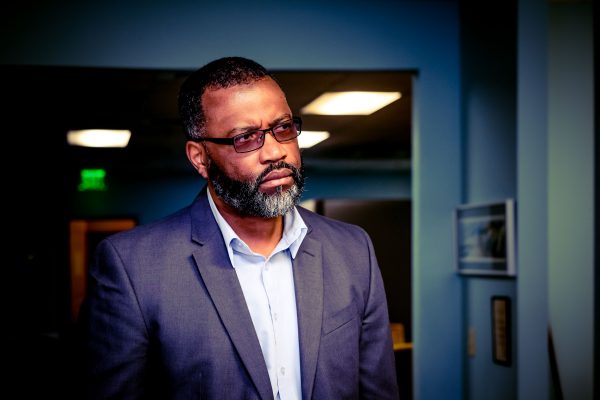
Troy Manns 
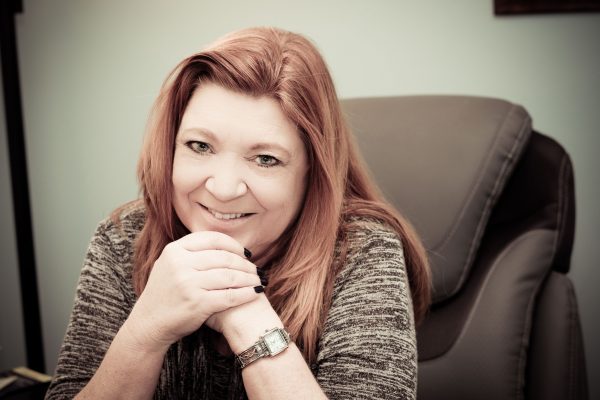
Terri Conyers
Individuals like Terri Conyers, the Statewide Manager of Community Relations, has been with RCNC since the beginning providing new resources and services to those RCNC serves as well as introducing organizations and individuals to RCNC and its rich and diverse programming. In regards to recovery, Terri herself is a success story being in sustained recovery for over 11 years. Terri shared, “To have the opportunity to engage with these individuals and to get to see them flourish, then rejoin society and make a difference in their community, is what we do and love doing.” Troy Manns, the Statewide Manager of Advocacy and Education has more than 17 years of experience of working with galvanized people and systems towards supporting long term recovery initiatives. He explains his mission as being an advocate for others. Troy himself has been in sustained recovery for almost two decades. Troy stated, “We are opening the box and inviting those who are in it to feel comfortable enough to come out, understand that they too have an opportunity and right to experience life in recovery and know there are people available to help them see that expectation become a reality”.
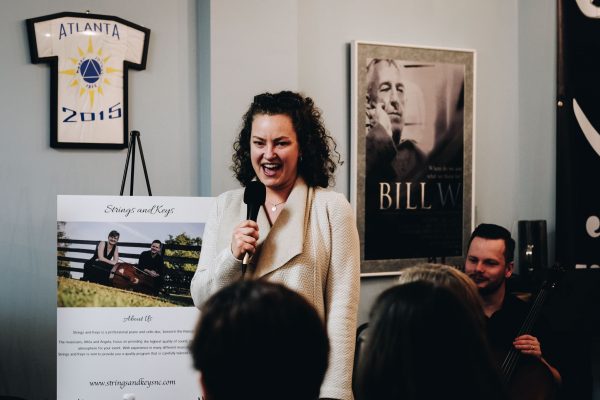

Another key RCNC team member includes Karen Kranbuehl, Chair of the Board of Directors. Karen stated that in the past it has been difficult for community members to find recovery supports that are a good fit for them. RCNC is committed to supporting multiple options in recovery. This makes it much easier for everyone to develop a personalized and multi-faceted recovery that can grow and change over their lifetimes. For example, RCNC offers people opportunities to incorporate things like meditation and nutrition in their recovery. In terms of person-to-person support, until recently, it has appeared that Twelve Step support groups were the primary paths to recovery. RCNC can open up a whole world of person-to-person supports for an individual. For example, RCNC trains Recovery Coaches and Peer Support Specialists who can offer a completely different kind of person-to-person recovery support.
In addition to being the Chair of the Board of Directors, Karen contributes to RCNC’s efforts, by being a social justice advocate and serving on committees that actually drives change whether it is peer support definition committee, serving as the Chair for the State’s Substance Use Federation. Karen has also provided some no-cost trainings to RCNC participants in various settings through her company, SAY IT Solutions. SAY IT develops and delivers trainings that build individuals’ capacity for maintaining wellness by activating self-determination and self-advocacy.
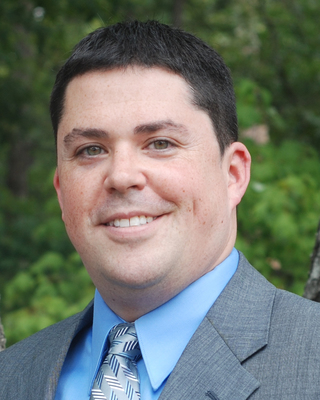

Board member, Eric Morse, M.D., who is an Addiction and Sports Psychiatrist and medical director for 3 opioid treatment programs, works tireless to change the stigma associated with substance use disorder not only with the public but also within the medical community. “It’s hard to deal with substance use disorder on your own. It is a lonely disease. Having family, having friends and having a community network is so important. Having mentors and getting access to those people can be a challenge because not everyone advertises they are in recovery. Getting the help that folks need and what it takes to sustain recovery is key”, expressed Dr. Morse.
The quote, “You can’t understand someone until you’ve walked a mile in their shoes” is a formula for empathy. RCNC consist of staff members who are either in long-term recovery from substance use disorder or are close family members of those who have suffered in the throes of addiction. This empathetic attitude is just one of the many ways that the team at RCNC is making a difference when it comes to recovery and substance use disorder. They understand the stigma around the disease and want to advocate for those dealing with SUDs and those who do not always have a voice in the community as it relates to addiction. The team at RCNC are not afraid to look at very difficult or uncomfortable circumstances and situations and begin asking the questions that need to be asked. In partnership with the participant, they take a look at these issues and begin opening the door of exploration with them, instead of turning a blind eye.
Dr. Linger states that “RCNC staff act as a flashlight for the recoveree, shining a light on the path, and letting the recoveree discover the possibilities of a full life without shame or stigma which lie on their path.” The RCNC team conduct peer support and recovery coaching sessions where participants assist in the building of recovery plans and assessing recovery capital in the participant, as well as facilitate listening sessions and community readiness assessments using a participatory action approach to glean information on what community programs and services are working well, and the changes/additions that need to be made to improve service provision. For instance, as the population of those with SUDs is getting younger, those at RCNC see the need to stay relevant and include programs and services to attract these younger individuals and build the skill sets for those who will work with them. It is an ongoing cycle of providing help and gaining input from those being helped on what works and what doesn’t and serving with them empathy. It is those strategies with an emphasis on empathy that makes RCNC so effective. They have already provided direct service and trainings to well over 10,000 individuals and organizations in North Carolina since they began their work in 2016.


Not only is it important to put emphasis on recovery, but Dr. Linger and RCNC believes in showing others that’s passionate about helping others, how they can also gain experience in the process. This type of situation is sometimes provided through college internship programs of which RCNC builds positive relationships. Maria Garcia Hawley, who has been named by staff as “one of the brightest college interns the RCNC team has ever had the pleasure of working with”, is in college to become a substance use disorder professional. She shared something simple yet key to recovery, which is the importance of expressing empathy towards individuals, and how it aids in their recovery. “When discussing the need for empathy while working with individuals in recovery for substance use disorder, one must first discuss why it is important to be empathetic with people in this community. There is generally a negative stigma around substance use disorder, which has lead to many adverse effects on individuals in recovery. People entering treatment already experience feelings of shame and because of the stigma around the topic, they experience shame in recovery as well. This stigma often discourages people from disclosing that they are in recovery. Feelings of shame have not only been linked to one of the underlying causes of substance use but it is also related to an individual’s reasoning behind their return to use. So now one might wonder how empathy plays a role in recovery.”
It (empathy) is defined as the ability to understand and share the feelings of another person. By expressing empathy, individuals are experiencing a person’s situation from within their frame of reference essentially placing themselves in another person’s position. There are a variety of ways people can be empathetic towards individuals, including but not limited to, understanding a person’s culture, having an attitude of acceptance, and being authentic. However, it is important to remember that being empathetic is not imposing direction or judgment. In terms of alcohol and drug recovery, being empathetic towards individuals can have a positive impact on the success of their recovery by creating a safe recovery environment. The benefits of using empathy with this community are endless.
Being empathetic towards individuals in recovery for substance use disorder is beneficial due to the fact that it combats many of the negative effects of substance use disorder. Not only does it communicate to people who are in recovery that their feelings are understood and respected, but it also allows people to better support the individual. It encourages a non-judgmental environment along with complimenting the individual instead of degrading them. These are just a few examples of how empathy is a key tool in helping individuals in their recovery. If these positive attributes are not enough to back up the idea that empathy is essential, there is also concrete evidence that reinforces this concept.
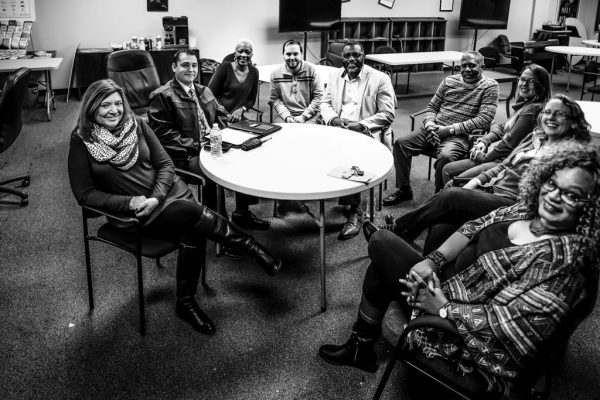

Most resources available to people in recovery use empathetic styles of communication when working with people who have been diagnosed with a substance use disorder. It has been proven that the best way to approach individuals with a substance use disorder is to meet them where they are in the recovery process, which can be achieved through expressing empathy. Peer-based programs such as recovery coaches and peer support specialists, along with evidence-based practices like motivational interviewing provide efficacious interventions that work in supporting individuals in recovery. RCNC believes, however, the use of empathy does not only have to take place in a clinical setting. Empathy can and should be used in everyday life to better relate to the people with whom we are engaging on a daily basis.
Of course, recovery is never easy and there are multiple barriers that can get in the way. One of the biggest barriers is how substance use disorder and recovery are looked at by society. We need to stop looking at people who suffer from substance use disorder as if they chose to put that needle in their arm or those pills in their mouth. We need to begin looking at substance use disorder as what it is: a chronic brain disease. That is why RCNC makes it a priority to treat people that walk through their doors with dignity and respect with the sole goal of helping them, not judging them. “If we can change how those with a substance use disorder see themselves and through education, change how the world looks at them, then we can begin to seriously tackle the impact of stigma”, says Dr. Rita Anita Linger.
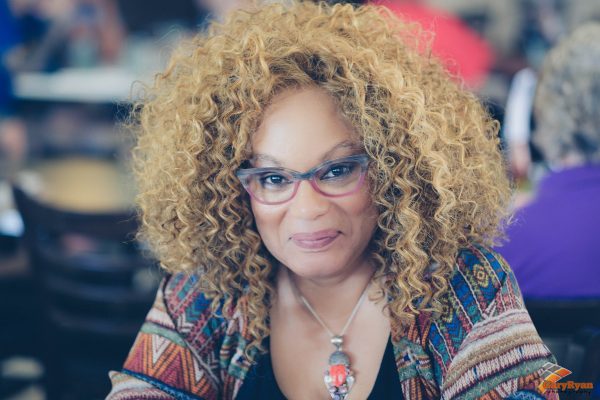

Organizations like RCNC cannot do it alone! Dr. Linger is grateful for the funds they receive from SAMHSA facilitated through the North Carolina Division of Mental Health, Developmental Disabilities and Substance Abuse, in order to fulfill the mission and service provision of RCNC. RCNC has also received funding from the Wake County Human Services as well as other funding sources. SUDs and addiction are epidemics that need to be treated as such. RCNC could not provide the level of services they have without support; they need more support to meet the needs of the communities it serve across the state. Karen Kranbuehl stated, “When most people think of seeking formal help for substance use disorder, they think of clinical treatment. The reality, however, is that only a small fraction of people with SUD that actually receive treatment. For people who cannot access treatment, RCNC is an essential recovery resource. Moreover, people who do access treatment only have it for a period of days, weeks, or months. After that, they have an entire lifetime over which to sustain recovery. RCNC is in the community to support them.”
Those at RCNC hope to see changes in the legislation and laws that provide financial and legislative support for recovery and treatment efforts. RCNC believes that one of the major social determinants to sustained recovery is health and one of the barriers to recovery is lack of financial resources. People who come through the doors at RCNC are often dealing with multiple health issues in addition to their SUD (diabetes, heart disease, hernias, etc.) and they cannot afford the proper level of care needed so they see no other alternative but to turn to substances for relief. Medicaid expansion needs to occur in order for people to afford basic health care. The RCNC team are advocates for change in quality of life and sustained recovery for the many who want to live a life of freedom, value, joy and fulfillment.
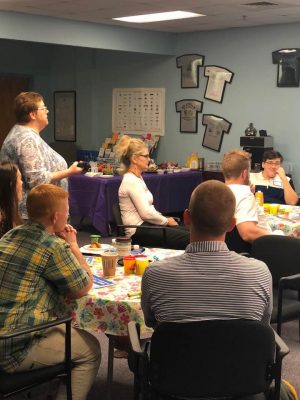

RCNC is part of the Second Chance voices of advocates in North Carolina and believe that all people in recovery are worth a second chance. We know that many formerly incarcerated people have non-violent felonies associated with substance use disorder or distribution, and those individuals will have a difficult time acquiring a livable wage job so that they can take care of themselves and their families unless the law changes. RCNC also have ambitions of having an entrepreneurial incubator that includes workforce development, care coordination, peer support, and recovery coaching. There will be a gradient of services where anyone that is in recovery can participate. Dr. Linger stated, “If we can have just one person, taking care of one person, we can transform addiction.”
RCNC believes that the community can make a huge difference in the level of care that RCNC can provide by getting involved as a donor and/or volunteer. While they are primarily funded through federal and state grants, they invite those who recognize the value of their work to donate and support them in whatever ways they can. RCNC will soon be launching a sustainer program where individuals can sign up to donate a certain amount of money each month to RCNC and then choose what programs they want to support. RCNC also holds the Rally for Recovery every September in honor of Recovery month. That event offers the opportunity for individuals to come together within the community and celebrate recovery.
Anyone needing help or anyone who has someone struggling with addiction or even those who are curious to learn more about SUDs and recovery are invited to come visit RCNC. SUD is not an issue that picks and chooses who is affected; anyone can suffer from this disease. Substance use disorder can be an addition to not just drugs, but alcohol, prescription meds, etc. So, it is important that everyone within the community be aware of this issue and know what to look for and how to respond when needed. I strongly urge you to see how you can get involved!

